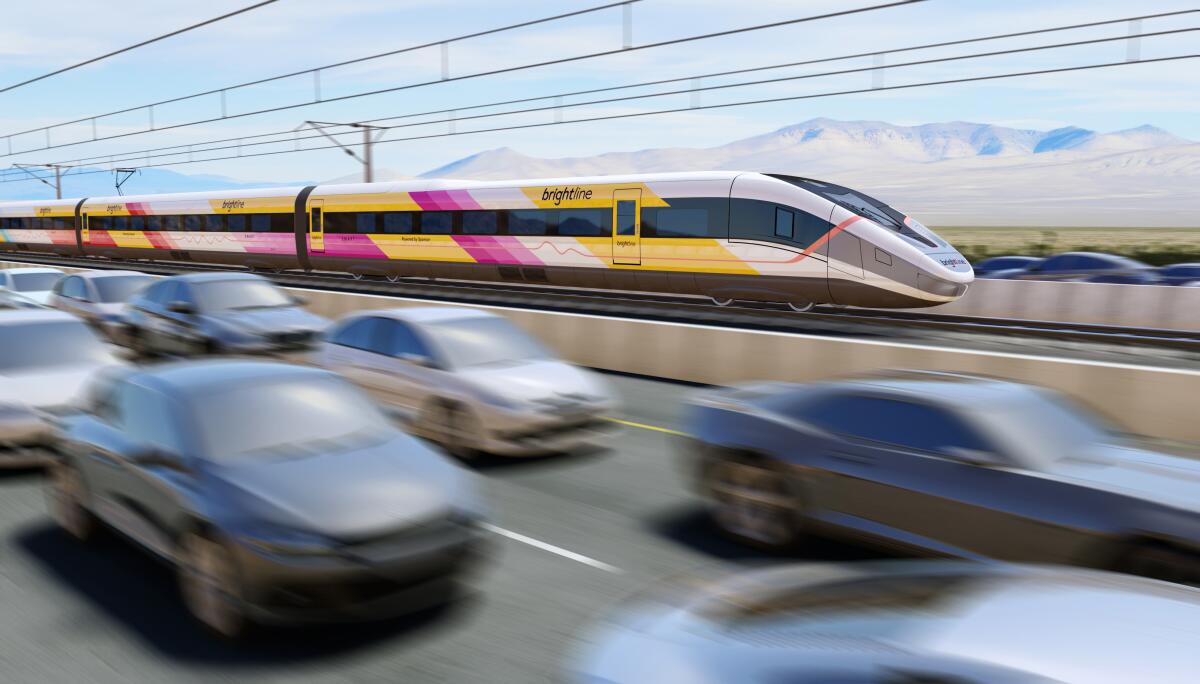A first view of what the high-speed rail to Las Vegas might look like

- Share via
Efforts to get high-speed rail from Southern California to the Las Vegas Strip are gaining steam, with the first images of what the trains might look like being released this week.
Brightline West, the company constructing the $12-billion project, unveiled renderings of the electric-powered American Pioneer 220 trains that Siemens Mobility hopes to build as the preferred bidder for the planned opening in 2028. The high-speed trains will go up to 220 mph, officials said, allowing passengers to ride from Rancho Cucamonga to the Strip in less than two hours.
Although Siemens’ contract is yet to be finalized, it has agreed to build a new U.S. facility that will deliver the fleet of 10 sets of seven-car trains, in a location yet to be announced. A division of the German conglomerate, Siemens AG, the bidder already has a 2,700-person manufacturing hub in Sacramento where it builds light rail train cars, passenger coaches and locomotives including its “Venture” series trains, which debuted on Brightline’s Florida system in 2018.
As part of the agreement, Siemens will perform maintenance and repairs on the cars at a future Brightline West facility in Sloan, Nev.
Both companies, along with federal transportation officials, hope this will signal the start of a new era in U.S. high-speed rail manufacturing and transportation.
“The momentum we are building will culminate in new jobs and a new supply chain that will establish the foundation for a high-speed rail industry from coast to coast,” said Michael Reininger, chief executive of Brightline Holdings, which oversees Brightline West.
Last month, Brightline West broke ground on the 218-mile Las Vegas to Southern California system, bolstered by $3 billion from the Biden administration, along with access to $3.5 billion in tax-exempt bonds. But the company is still trying to raise funds on the private market to build the system along the median for Interstate 15, and through the Cajon Pass, a stretch of terrain that experts say could prove particularly challenging for engineers.
The trains will carry up to 450 passengers, with plans to connect it, via a high-speed rail alignment in the high desert, to the California High-Speed Rail Authority system planned between San Francisco and Los Angeles.
Last month, Rail Authority officials announced they were also seeking bid proposals from Siemens Mobility and the French-owned Alstom Transportation to build six train sets capable of operating at 220 mph, and tested to 242 mph. The latter is developing a high-speed train for Amtrak’s Northeast corridor. Efforts are also underway to build high-speed rail in Texas and in Seattle.
More to Read
Sign up for Essential California
The most important California stories and recommendations in your inbox every morning.
You may occasionally receive promotional content from the Los Angeles Times.










